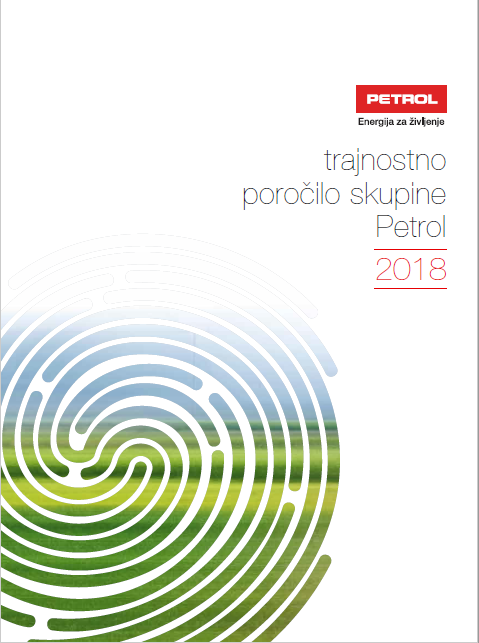2018 Petrol Group Sustainability Report
For the Petrol Group, sustainable development is a priority and a responsibility of the most senior management. Due to the topic’s importance, since 2012 the Petrol Group has been publishing separate biannual sustainability reports that complement the annual report. A summary of sustainability-related information is also published in the annual reports. This year’s sustainability report is thus the fourth in a row. The purpose of the separate document is to provide a detailed overview of the sustainability strategy and challenges, goals, programmes, projects and, of course, results. Petrol’s activities are complex and varied, meaning that the company is continuously developing its methodology for sustainable development and measuring, evaluating and reporting on sustainability.
In preparing the concept of the report, Petrol observed GRI sustainability reporting standards and the company’s own stakeholder matrix. Based on the interests of strategic stakeholders as identified by using an extensive survey, Petrol defined the key sustainability topics and indicators.
Each segment of the company’s operations is based on a business and sustainability strategy, as well as other strategies and policies for individual sectors. The strategic and operating framework of the Petrol Group is presented in the first part of the report. The economic and business indicators were limited only to those most indicative for understanding the sustainability context, whereas more detailed data are available in the annual report. Regarding social relations, the company emphasises its employees and provides separate analyses of relationships with other stakeholders and society in general.
Due to Petrol’s standing as the largest energy company in Slovenia, its environmental footprint is particularly important. It is disclosed in two segments: the footprint of the company’s own activities and the footprint of the company’s range of commercial products. When preparing the report, Petrol did its best to include all key internal and external stakeholders through various communication channels. All key divisions of the Petrol Group were involved in determining the subjects covered and in measuring, analysing and presenting the results.
Petrol’s reporting is transparent and includes data that are currently being managed. When choosing the content, the following elements are of key importance: materiality, stakeholder involvement and the sustainability context. When presenting the report, the company endeavoured to present the data in a balanced, comparable, accurate, clear and reliable way.
At the executive level, sustainable development is managed by the Sustainable Development, Quality and Safety Division (SDQS). The administrator of methodology for sustainable development and reporting on sustainable development is Marta Svoljšak Jerman, director of SDQS.

